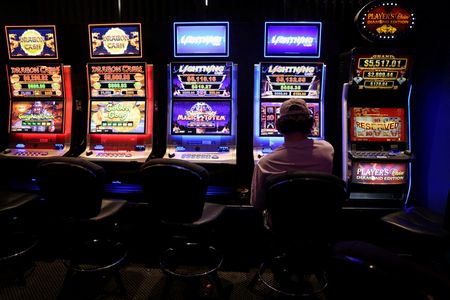By Byron Kaye and Himanshi Akhand
(Reuters) – Shares of Endeavour Group, Australia’s biggest pub owner, hit a record low on Monday after a surprise state government decision to impose identification checks and gambling limits on poker machine users.
Victoria, Australia’s second-most populous state, said at the weekend it would make poker machine users register for an ID card to prevent money laundering and set a loss limit in advance to restrict problem gambling. It would order machines slowed down and most venues to close overnight.
Analysts were divided on the scale of the impact on Endeavour, the country’s biggest owner of poker machine licences, given the company does not break out poker machine profit in its results. Its “hotels” division made about 40% of its profit in the December 2022 half.
Shares of Endeavour, spun off from grocer Woolworths in 2021, were down 10% at A$5.66 by midsession, the biggest single decline in the flat overall market.
The change also adds pressure on other states, particularly New South Wales (NSW), to follow suit and heed community demands for greater regulation of poker machine gambling. The recently elected Labor government in NSW has rejected calls for a Victorian-style crackdown.
“We had thought regulatory risk dissipated post-NSW state election. Today’s Victoria announcement adds material uncertainty,” Jefferies analysts said in a note.
Earnings “impact is difficult to quantify but gaming’s high margin and low variable cost means any revenue reduction would cause substantial operational deleverage”, the note added.
Sydney-based Endeavour said it was “difficult to speculate on the impact of these reforms” but noted it was already working with other states which were trialling similar measures.
Australia is home to one-fifth of the world’s poker machine licences, the most of any jurisdiction outside Las Vegas.
That has contributed to the world’s highest rate of problem gambling, with more than a million of the country’s 26 million people at risk of developing a harmful betting habit, public health experts say.
($1 = 1.4631 Australian dollars)
(Reporting by Byron Kaye in Sydney and Himanshi Akhand in Bengaluru; Additional reporting by Navya Mittal; Editing by Subhranshu Sahu and Stephen Coates)





